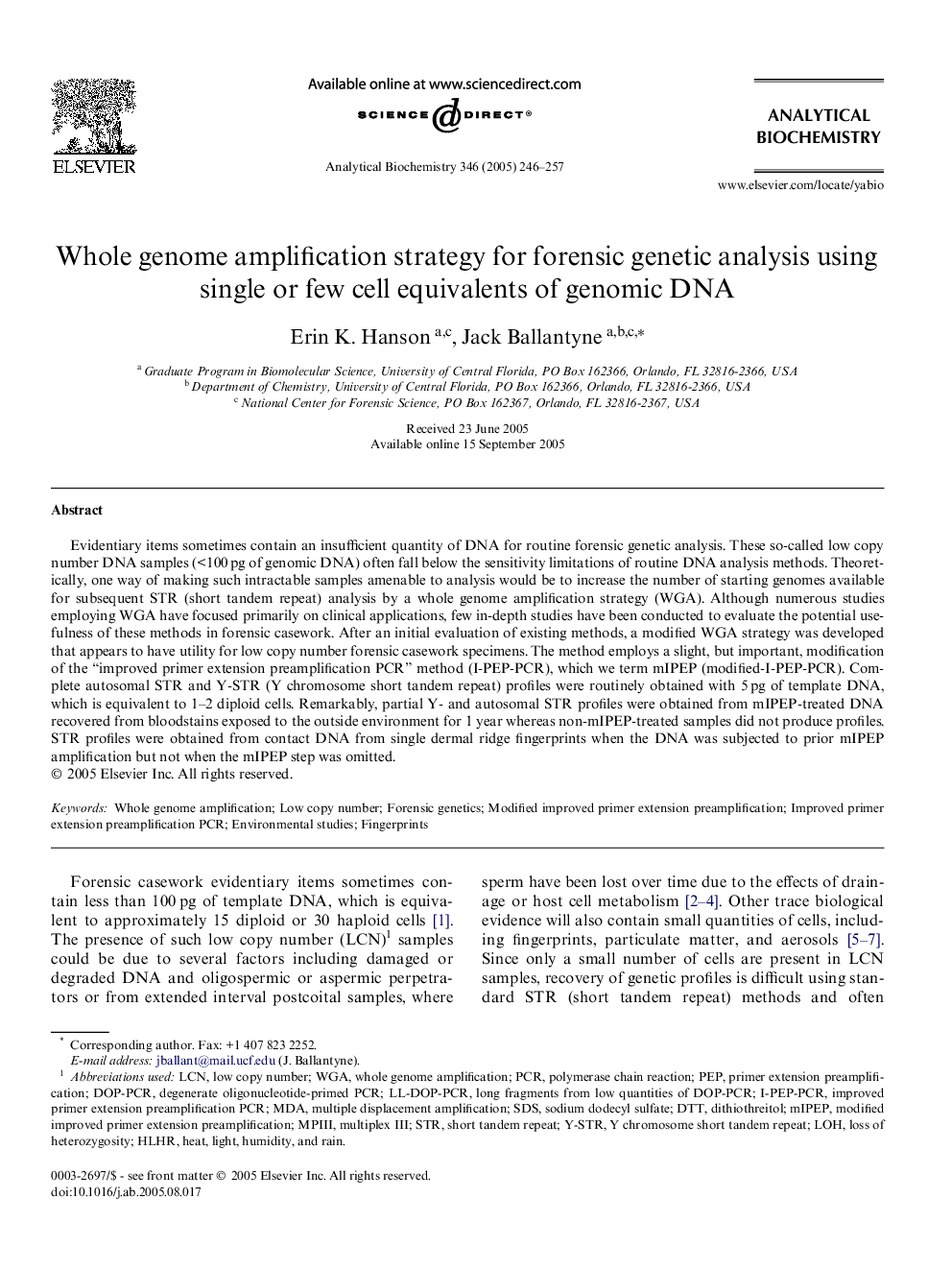| Article ID | Journal | Published Year | Pages | File Type |
|---|---|---|---|---|
| 10536229 | Analytical Biochemistry | 2005 | 12 Pages |
Abstract
Evidentiary items sometimes contain an insufficient quantity of DNA for routine forensic genetic analysis. These so-called low copy number DNA samples (<100Â pg of genomic DNA) often fall below the sensitivity limitations of routine DNA analysis methods. Theoretically, one way of making such intractable samples amenable to analysis would be to increase the number of starting genomes available for subsequent STR (short tandem repeat) analysis by a whole genome amplification strategy (WGA). Although numerous studies employing WGA have focused primarily on clinical applications, few in-depth studies have been conducted to evaluate the potential usefulness of these methods in forensic casework. After an initial evaluation of existing methods, a modified WGA strategy was developed that appears to have utility for low copy number forensic casework specimens. The method employs a slight, but important, modification of the “improved primer extension preamplification PCR” method (I-PEP-PCR), which we term mIPEP (modified-I-PEP-PCR). Complete autosomal STR and Y-STR (Y chromosome short tandem repeat) profiles were routinely obtained with 5Â pg of template DNA, which is equivalent to 1-2 diploid cells. Remarkably, partial Y- and autosomal STR profiles were obtained from mIPEP-treated DNA recovered from bloodstains exposed to the outside environment for 1 year whereas non-mIPEP-treated samples did not produce profiles. STR profiles were obtained from contact DNA from single dermal ridge fingerprints when the DNA was subjected to prior mIPEP amplification but not when the mIPEP step was omitted.
Keywords
Related Topics
Physical Sciences and Engineering
Chemistry
Analytical Chemistry
Authors
Erin K. Hanson, Jack Ballantyne,
